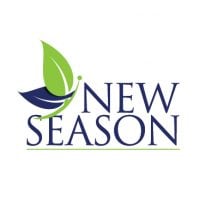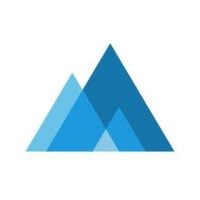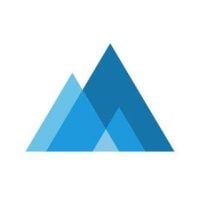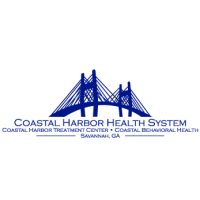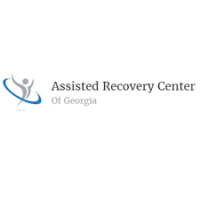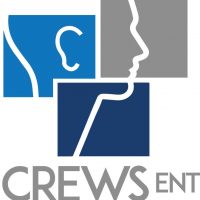Union Mission
Drug Rehab Center in Savannah, Georgia
Union Mission in Savannah, Georgia provides addiction and substance abuse services through individualized care and community resource leveraging, and has received multiple accreditations and licenses for their commitment to top quality care.
About This Georgia Facility
Union Mission in Savannah, Georgia has been providing vital services to individuals and individuals in need since 1895. Their primary mission is to serve homeless individuals and families by relieving their suffering and transforming their lives, while helping them to become productive, self-reliant citizens. The facility offers a supportive, safe environment in which those affected by addiction or substance abuse can find help. Union Mission offers help across many areas including emergency housing and care, educational support, employment training, and substance abuse and psychological counseling services.
Union Mission provides a multitude of addiction and substance abuse services to help those in need. They focus on individualized care and empowerment, while also leveraging community resources to help those affected. The facility offers a number of programs explicitly designed to help those affected, such as individual and group counseling services, psychiatric evaluations, and treatment for family members of those suffering from addiction. Furthermore, Union Mission provides additional treatments tailored to those affected such as holistic treatments, such as nutrition and fitness consulting, and recreational activities.
Union Mission has a number of accreditations and licenses that provide evidence of their commitment to providing top quality services. The facility is accredited by the Commission on Accreditation of Rehabilitation Facilities and has been recognized for its excellence in programing by the Georgia Council on Substance Abuse. In addition, Union Mission is a licensed Mental Health/Substance Abuse outpatient facility and also holds a Substance Abuse Professional license from the State of Georgia. These accreditations and licenses demonstrate the organization's commitment to offering top quality care and services to those affected by addiction and substance abuse.
Genders
Ages
Modality
Additional
Conditions and Issues Treated
When addiction and psychiatric issues co-occur, the addict’s recovery is more successful when both conditions are treated. A dual diagnosis refers to a condition in which the patient is diagnosed with two health issues: addiction and bipolar disorder.
Usually, dual diagnosis sufferers are prescribed a combination of treatments for each condition. The most common therapies are psychotherapy, behavioral therapy, spiritual counseling, 12-step programs, and medication management.
Psychiatric conditions are an obstacle to recovery because they can create roadblocks to a healthy lifestyle. Drugs and alcohol may be used as a means of self-medication, which can have dangerous consequences. Over time, addicts build up a tolerance and suffer withdrawal symptoms when drug use is stopped.
With the proper treatment, dual diagnosis sufferers can overcome their conditions and achieve lasting sobriety.
Levels of Care Offered at Union Mission
This center offers a variety of custom treatment tailored to individual recovery. Currently available are Dual-Diagnosis, Outpatient, with additional therapies available as listed below.
Individuals struggling with drug addictions can get help from several treatment options, including inpatient and outpatient programs. Outpatient drug treatment programs can also provide patients with different levels of care, usually depending on the patient’s degree of addiction.
At an outpatient program in Savannah, a patient will attend a recovery program during the day and return home in the evening. Suppose a patient is struggling with drug addiction. In that case, an outpatient program can serve as an effective transition point during the recovery process.
Therapies & Programs
Individual therapy is a critical component of addiction recovery. It allows the patients to go deep into their core issues and discover how to handle those problems better. Therapy can be conducted in individual sessions as well as group settings. In individual therapy for addiction, the patient meets with their therapist one-on-one to focus on the underlying issues. This allows patients to open up and discuss personal topics they may not feel comfortable discussing in a group setting. This type of therapy can help develop solutions specific to each patient, which helps speed up the recovery process.
Couples therapy is beneficial for couples in which at least one partner has a substance use disorder. This type of therapy can help partners improve communication skills, which is an important factor in a healthy relationship. It can also help partners better understand one another so they have a greater understanding of how the other partner may be feeling.
Benefits of couples therapy include:
- Improvement in communication skills
- Increased understanding of the dynamics within a relationship
- Increased sense of support and trust in the relationship
- Better teamwork between partners/increased willingness to listen and work together
- Enhanced tolerance of each other’s shortcomings
- Improved ability to have open, honest communication with each other
Family therapy is a crucial part of drug treatment and getting sober. It is one of the most effective ways to help addicts stay on the path to long-term sobriety. When a drug addict decides that they want to try and get sober, it takes the support of every person they love to succeed. It can be incredibly difficult for loved ones to watch an addict go through the pain and suffering of withdrawal, but by being there with them and supporting them, they can help to make sure that the addiction never returns.
One of the most important parts of family therapy is the relapse prevention plan. During treatment, therapists and doctors will often sit down with the addict and their family to develop a plan in case the addict ever feels like they want to use again. This plan should involve steps the addict and family can take together to prevent them from relapsing in the future. An addict’s family can play a vital part in helping them to avoid relapse because they can spot the warning signs and help them get back on track before it becomes too much of a problem.
Group therapy helps prevent addicts from feeling isolated or unique in their situation by offering a sense of comfort and fellowship. It also creates a forum for addicts to build their support systems and learn from each other. The group therapy sessions at Union Mission occur in a group setting rather than one-on-one to create a safer, controlled environment where addicts feel comfortable.
Trauma therapy helps people dealing with addiction by allowing them to confront the traumas of their past and move past them. It is important to note that trauma therapy should not be confused with PTSD (post-traumatic stress disorder) Rather, it is used to treat the effects of trauma, which are often at the root of addiction.
Dialectical Behavior Therapy was developed in the 1980s to treat chronically suicidal individuals. It is a cognitive-behavioral therapy that combines strategies derived from Zen Buddhism, such as mindfulness training. DBT has been adapted for use with other types of psychiatric problems, including substance abuse and personality disorders. DBT aims to help patients change their thinking and behavior, instead of relying on medication.
Cognitive Behavioral Therapy (CBT) is a common therapeutic approach to help drug addicts. It teaches addicts new ways of thinking and behaving so that they can avoid relapse. There are several forms of CBT used in drug rehabilitation centers.
Cognitive Restructuring helps addicts identify faulty, negative thinking so that they can work together with the therapist to find healthier ways of thinking, resulting in better decision-making.
Cognitive Behavioral Therapy for Addiction uses the principles of CBT to help treat addiction. It focuses on specific aspects of each person’s thinking, feeling, physiology, and behavior. It aims to identify specific problems in these areas and create a personalized treatment strategy.
Payment Options Accepted
For specific insurance or payment methods please contact us.
Additional Details
Specifics, location, and helpful extra information.
Savannah, Georgia 31401 Phone Number(912) 238-2777 Meta DetailsUpdated November 25, 2023
Staff Verified
Patient Reviews
There are no reviews yet. Be the first one to write one.
Savannah, Georgia Addiction Information
Prescription opioid use has caused a large increase in the total amount of overdoses in Georgia. Almost 12% of the Georgia population uses illicit drugs each year, and slightly over 3.5% also abuses alcohol at the same time. This does not include those who binge-drink at least once a month, which includes 20% of all Georgians.
9% of Savannah, Georgia, residents reported using an illicit drug and 17% reported binge drinking. Over 1,600 people died due to drug overdoses in Georgia from 2010 to 2015. The most common types of drugs were methamphetamine and cocaine. Many treatment types are available in Savannah, including inpatient treatment which is likely the best option for some people, while outpatient treatment may be better for others. Faith-based rehabs offer 12-step programs.
Treatment in Nearby Cities
- Dahlonega, GA (237.5 mi.)
- Flowery Branch, GA (219.0 mi.)
- Ball Ground, GA (245.6 mi.)
- Stapleton, GA (111.8 mi.)
- Dublin, GA (110.1 mi.)
Centers near Union Mission
The facility name, logo and brand are the property and registered trademarks of Union Mission, and are being used for identification and informational purposes only. Use of these names, logos and brands shall not imply endorsement. RehabNow.org is not affiliated with or sponsored by Union Mission.

